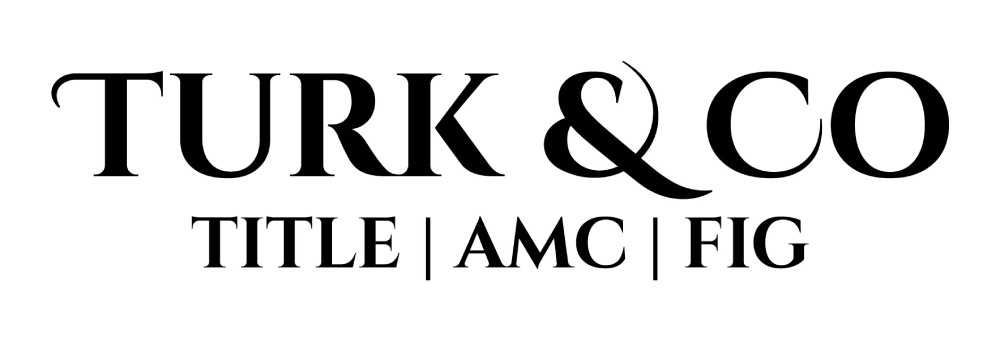WARNING: This article contains language which may be unsuitable for those unaccustomed to honesty in business communications.
The changes we are seeing in the title M&A space these days fall into two buckets: technical and behavioral. The technical changes should come as no surprise, whereas the behavioral changes are simply alarming. The underlying dynamics which drive M&A activity in title and title ancillary businesses operate mostly independent of economic cycles. Consolidation still makes sense. Title agency owners still get older every day and face succession issues. Fear of disruption from technology is just as real now as it was a few months ago. Investors are still flush with cash and the big guys still want to get bigger. We at Turk & Co are still seeing an abundance of M&A activity in the title agency and ancillary services firm market.
While the drivers of M&A are much the same as they have been these past few years, the end result is quite different. On the technical side, there has been a shift in how baseline EBITDA is calculated as well as earnout methodology. Baseline EBITDA is the number against which a multiple is applied to determine enterprise value. It also can drive elements of an earnout. Earnout methodology is shifting as both buyers and sellers struggle to determine who should bear the risk of sustainable business volumes post acquisition. This becomes apparent in the context of the percent of the purchase price paid in cash on the closing, as well as what has to happen for the seller to ‘earn’ the rest. Collectively, these directly impact how much a title agency owner can expect to receive in absolute dollars when all is said and done. Part of our job (whether we represent a buyer or a seller) is to apply our many years of industry expertise to help determine what the new normal is or is likely to be in terms of sustainable volumes.
By far, the biggest change we at Turk & Co are seeing in the market today is most definitely behavioral. The mindset of many buyers and sellers has changed. Some buyers (those who need to borrow) are at risk of being shut out due to their inability to compete with balance-sheet buyers. This is because the rising cost of money leads to lower ability to pay as much and still generate expected returns. That can change in a minute as well if the economy enters recession and the Fed lowers rates. It’s always important to understand where and how the buyer is sourcing funds.
Note to reader: PLEASE JOIN ME ON THIS BRIEF RANT.
Buyers come in all stripes. Let’s call them ‘good’ and ‘bad’.
A ‘good’ buyer is one who is honest and decent and who wants to transact fairly and in a commercially reasonable manner. Commercial reason means everyone plays fair and is honest, straightforward and direct. Transactions flow built on the premise of solid business planning and synergies which are accretive. Good buyers aren’t fools. They keep an open mind as to what sustainable volume truly is and know that Title is a cyclical business. A good buyer does not behave like a day trader. Most buyers are ‘good’. Every buyer we have ever closed a deal with would fall into the category of ‘good’.
Most buyers are ‘good’. Every buyer we have ever closed a deal with would fall into the category of ‘good’.
But then there are the creepers. ‘Bad’ buyers are insidious little creatures. Cloaked in ostensible respectability these buyers want to steal, mislead, gaslight and leverage their size and ‘prowess’. Like spiders, they build a web hoping for something to get caught up in their trap. They tend to operate in an integrity-free zone and have no passion for anything other than rampant avarice. These are the ones whose smile is really that of a serpent, namely one replete with nefarious intentions. These guys are pros and will try to trick you with the right words, patiently awaiting their moment to strike, sometimes when you’re just too emotionally and financially caught up in their web of deceit to escape.
“And I stood arrow straight unencumbered by the weight of all these hustlers and their schemes”. -Bob Seger
One of our core areas of expertise at Turk & Co revolves around our ability to distinguish sense from nonsense.
Traits of a bad buyer include inducing deal fatigue (wearing down the seller so they give in to ridiculous items just to be done with the process), low balling, stealing of information notwithstanding a NDA, and more. They may lull you into a false sense of security, taking you out to fancy dinners, portraying an image of a wonderful future together. Just when you think you can relax and toast the wise decision made to engage with them, they suddenly drop the purchase price or alter the deal terms dramatically, accompanying that shift with an explanation that is pure and utter (expletive deleted).
Some of these slick ‘Fast Eddie’ buyers will want to ‘have their cake and eat it too’ and suggest that the market multiple has dropped AND that the lower multiple be applied to a lower base, thereby producing an inferior result for the seller. Based on deals we have closed and have in market that is not true. They often mistake kindness for weakness.
Some ‘fancy’ buyers neglect to mention that they do not have investment committee approval. Oops. That means their big balance sheet and stable of past deals means nothing. They are shooting blanks, hoping to find the right deal and then get what they need to close.
The disparity between the ‘good’ and the ‘bad’ is so stark—and to me is just so upsetting. Turk & Co is very vigilant and on alert for these antics. We can smell the bad from the good a mile away and know all their sordid little devious tricks. They can’t fool us.
It does not have to be this way.
We believe that businesses generally can survive and thrive based on mutual benefit and consensus. The Buyer and the Seller in every one of our deals got what they bargained for and no one we’ve ever dealt with has walked away unhappy (read our testimonials).
On the sell side, we are seeing some behavioral changes as well. Some sellers are asking themselves whether they can hang on for another economic cycle. While that is a fair and reasonable question, it also can induce a level of anxiety, which, if communicated to a buyer, can impair value (especially if they sense desperation).
Some great agencies have become more realistic in their value expectations. That does not mean they are waiting idly for a suitor to come sweep them away. Rather, they typically are looking for ways to instantly lower costs (ask us about our Underwriter splits analysis and Outsourcing programs), diversify product offerings, and will do what they can to hang on. Independents are in a tough spot right now. The future is uncertain.
We are also seeing sellers pay more attention to business culture. We’ve been extolling the virtues of cultural alignment between the teams on both sides of a transaction for years. What will the days be like for the sellers post acquisition? Will they be excited to go to work? Will they still have control over their day-to-day decisions? Will they be a cog in a wheel? Will the buyer tear apart everything the seller built? If a seller does not have clarity on these issues, they need to think long and hard about next steps. After a closing the parties should not be ‘sellers’ and ‘buyers’ but rather partners.
As a business we at Turk & Co are fortunate to be able to choose who we represent, and we only work with people who share our values and have a cultural alignment with our team. We view our clients in a paternalistic fashion, protecting them from folly. While we have fiduciary duties to and advocate for our clients, we will never try to trick anyone. That’s just not how we roll.
We know who the creepers are and how to handle them.
We believe in the value small business brings to our country. We want our clients to fairly monetize their life’s work. We do not want to inflate value or pull the wool over anyone’s eyes. We just want everyone to play fair. When the bad ones come along, they are taking advantage of decent and nice people who only want a fair succession plan and a way to preserve their legacy. Without professional representation or access to a robust resource pool, there can be an inequality of bargaining power.
This blog is much longer than anything I’ve ever published before. The reason for the length has a lot to do with the importance of the following message to sellers:
Sellers should be absolutely sure they are working with someone who knows what they are doing. Some firms buy and sell businesses for a living. It doesn’t have to be us, it could be any of our competitors, but whatever you do, don’t go it alone. Unrepresented sellers are a dream come true for a nefarious buyer. Sellers who strike out alone may unwittingly shortchange themselves.
Businesses like to grow. Some agencies will grow in this market simply by virtue of their product mix. Some will grow because they double down on sales and are externally focused when others are internally focused. Some, however, will grow by acquisitions or mergers, whether convenient or inconvenient to one’s sense of long-term planning.
Selling a business is an art form. The stakes are high. An error can undermine the value of a lifetime of effort.
Anything worth doing is worth doing right.
-Howard Turk






















 For More information
For More information